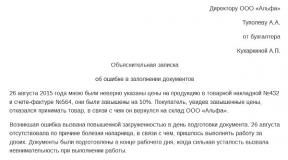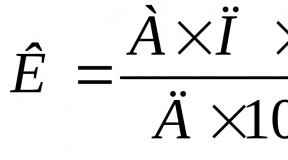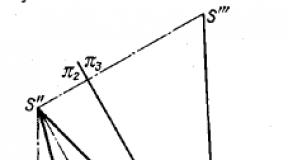The rate of the doctor in the clinic how many hours. Who is eligible for reduced working hours? Is it possible to work on two rates for doctors and nurses
Question:
Based on the Decree of the Russian Federation of February 14, 2003 No. 101, Appendix 2 establishes a 33-hour working week for employees of dental institutions. But in this list there is no position of a dentist-surgeon and honey. sisters. On the basis of what document is the working time for these positions determined?Answer: In accordance with Article 350 of the Labor Code of the Russian Federation for medical workers a reduced working time of no more than 39 hours per week is established. And further it is stated that, depending on the position and (or) specialty, the working hours of medical workers are determined by the Government Russian Federation. The duration of the working hours of medical workers is regulated by the Decree of the Government of the Russian Federation of February 14, 2003 No. No. 101 "On the duration of the working hours of medical workers, depending on their position and (or) specialty." Decree of the Government of the Russian Federation No. 101 consists of three annexes, each of which grouped lists of positions and (or) specialties of medical workers and the corresponding number of working hours per week, more than which medical workers falling under the scope of one or another application cannot work. Thus, Appendix No. 1 contains a list of positions and (or) specialties of medical workers for whom a 36-hour work week is established. Appendix No. 2 contains a list of positions and (or) specialties of medical workers for whom a 33-hour work week is established. This list includes medical workers of medical and preventive organizations, institutions (polyclinics, outpatient clinics, dispensaries, medical posts, stations, branches, offices); physiotherapeutic medical and preventive organizations, institutions, departments, offices; dental treatment and prevention organizations, institutions (departments, offices). Appendix No. 3 contains a list of positions and (or) specialties of medical workers for whom a 30-hour work week is established. This list also includes medical workers performing work related to radioactive substances and sources of ionizing radiation.
According to Decree of the Government of the Russian Federation of February 14, 2003 No. 101, the working hours of the following medical workers of dental clinics (departments, offices) is 33 hours a week:
- Dentist;
- Dentist-orthopedist;
- Dentist-orthodontist;
- Children's dentist;
- Dentist-therapist;
- Dentist;
- Dental technician (except dentist-surgeon, oral and maxillofacial surgeon).
Articles referred to in this paragraph dentists-surgeons are also not included in other annexes of this Decree that establish other reduced working hours. Thus, the duration of the working hours of dentists-surgeons is, in accordance with Art. 350 of the Labor Code of the Russian Federation 39 hours a week. Similarly, the issue of other positions and (or) professions of medical workers in dental clinics (departments, offices) should be resolved. So, if any positions and (or) professions of medical workers exercising their labor activity in a dental clinic (department, office) is not in annexes Nos. 1-3 of the Resolution, then for the specified category of workers the duration of working hours should be established in accordance with Art. 350 of the Labor Code of the Russian Federation, that is, 39 hours a week.
Accounting for working time in a medical institution: we draw up a shift schedule
As you know, the work of employees of medical institutions is specific, so they can work around the clock. And this is understandable, because they are fighting for the life and health of people. However, not a single health worker will be able to work seven days a week non-stop: firstly, he simply does not have enough strength, and secondly, this is a clear violation of the requirements of labor legislation. To prevent this from happening, working time is divided into several periods - shifts. We will talk about the organization of work by shifts and accounting for such working hours in this article.
What is considered shift work?
As a general rule, the working time regime should provide for the duration of the working week (five-day with two days off, six days with one day off, working week with the provision of days off on a rotating schedule, part-time work), work with irregular working hours for certain categories of workers, duration daily work (shift), including part-time work (shift), start and end time of work, breaks in work, number of shifts per day, alternation of working and non-working days, which are established by the internal labor regulations in accordance with labor legislation, collective agreement, agreements, and for employees whose working hours differ from general rules established by this employer - by an employment contract.
Shift work is one of the varieties of working hours. Such work may be introduced in cases where the duration of the production process exceeds the allowable duration of daily work, as well as in order to increase effective use equipment, increasing the volume of products or services provided (Article 103 of the Labor Code of the Russian Federation). That is, the work is performed in two, three or four shifts, the duration of which may vary.
Since daily duty is common in medical institutions (for example, a day after three), the question arises: is such work shift work? No, this mode of operation is not interchangeable, although schedules are also drawn up for it. Rather, it is a flexible schedule.
Note. The possibility of establishing a shift work regime should be enshrined in the local regulatory act of the medical institution.
During shift work, each group of workers must perform work during the established working hours in accordance with the shift schedule.
Since the mode of work, rest time should be fixed in the internal labor regulations, when including in these rules the conditions for shift work, we recommend reflecting in them for which category of workers such a mode is introduced, how many shifts work, what is the duration of rest in shift mode and how is the accounting of the working time of employees working in this mode.
Determine shift duration
To organize a shift work schedule, a shift schedule is needed. In order to draw it up correctly, first of all, you need to determine the duration of the shift, which is not established by labor legislation. We note that in this case it is necessary to take into account the provisions of Art. 94 of the Labor Code of the Russian Federation, according to which the duration of a daily shift cannot exceed:
For underage workers - from 5 to 7 hours;
For students combining work with study - from 2.5 to 4 hours;
For the disabled - the duration of daily work established by the medical certificate.
For workers employed in jobs with harmful and (or) dangerous working conditions, where reduced working hours are established, the maximum allowable duration of daily work (shift) cannot exceed:
With a 36-hour work week - 8 hours;
With a 30-hour work week or less - 6 hours.
In addition, we turn to Decree of the Government of the Russian Federation of February 14, 2003 N 101 "On the working hours of medical workers depending on their position and (or) specialty", according to which the working hours for certain categories of medical workers are 24, 30, 33 and 36 hours. In addition, according to the general rule established by Art. 350 of the Labor Code of the Russian Federation, for medical workers, a reduced working time is provided, which is no more than 39 hours per week. To determine the duration of the shift for them, you can use the Procedure for calculating the norm of working time, approved by the Order of the Ministry of Health and Social Development of the Russian Federation of August 13, 2009 N 588n. According to clause 1 of this procedure, if the working week is less than 40 hours, the duration of the shift is determined by dividing the established working week by five days. Accordingly, the duration of the shift of the health worker will be:
With a 24-hour work week - 4.8 hours;
With a 30-hour work week - 6 hours;
With a 33-hour work week - 6.6 hours;
With a 36-hour work week - 7.2 hours;
With a 39-hour work week - 7.8 hours.
Note! The duration of the working day (shift) immediately preceding a non-working holiday is reduced by one hour.
The collective agreement may provide for an increase in the duration of daily work (shift) in comparison with the duration of daily work (shift) established for workers employed in work with harmful and (or) dangerous working conditions, subject to the maximum weekly working time and hygiene standards working conditions.
Therefore, the duration of a shift in medical institutions working around the clock can be 8 (with a three-shift operation) or 12 (with a two-shift operation) hours.
Note that when establishing shift work, sometimes a summarized accounting of working hours is introduced. Therefore, it is necessary to organize the workflow in such a way that the norm of working time is worked out by the employee for the accounting period (for example, for a month). At the same time, on each day of the accounting period, the duration of working hours may change, so an increase in working hours on any day or week is compensated by a decrease in working hours on other days or weeks. Usually in medical institutions, the schedule is made for a longer period (for example, for a year).
Note. To calculate the norm of working time for an accounting period (for example, for a month), the duration of the working week must be divided by 5 (the number of working days in a week) and multiplied by the number of working days according to the calendar of the five-day working week of this month. From the result obtained, you need to subtract the hours by which the working time is reduced on the eve of non-working holidays. For example, let's calculate the working hours for December 2012: (33 hours / 5 days) x 21 days. - 1 h \u003d 137.6 h, where 33 is the normal duration of work for a health worker, 21 is the number of working days in December, 1 is the time by which the shift preceding December 30 is reduced (since the working day of December 31 has been moved to December 29) .
Making a shift schedule
So, we repeat that if medical organization shift work is provided, it is necessary to draw up a shift schedule. Employees must be familiarized with such a schedule no later than one month before its entry into force.
So that the shift schedule does not violate the rights of workers to rest, the Labor Code obliges the employer to take into account the opinion of the trade union body or other representative body workers. The procedure for taking into account the opinion of the elected body of employees is regulated by Art. 372 of the Labor Code of the Russian Federation.
Note. When drawing up the schedule, it should be taken into account that the duration of the shift should be reduced by an hour if the shift immediately precedes a non-working holiday (Article 95 of the Labor Code of the Russian Federation). But if the shift falls at night (from 10 p.m. to 6 a.m.), the duration of the shift is not reduced, since the reduced working hours are already established for medical workers (parts 2, 3 of article 96 of the Labor Code of the Russian Federation).
A unified form of the shift schedule has not been established, therefore, each medical institution develops it independently. As a rule, the shift schedule is an appendix to the collective agreement. However, if it is an independent local regulation of the employer, this will not be considered a violation.
Usually, the schedule establishes a direct order of alternation of workers in shifts, that is, an employee, having worked one shift, goes on vacation, after which he works another. In medical institutions (in particular, in antenatal clinics), the work schedule of doctors is often tied to the days of the month (for example, on even numbers - the second shift, on odd numbers - the first). It happens that shifts alternate every week, that is, one week the health worker works on the first shift, and the next week on the second.
An important point is a reflection of not only the order of shifts in the schedule, but also the time of rest. We recall that, on the basis of Art. 110 of the Labor Code of the Russian Federation, the duration of a weekly uninterrupted rest cannot be less than 42 hours.
In addition, one should take into account the duration of the rest between shifts, which, by virtue of the still valid Decree of the Council of People's Commissars of the USSR of September 24, 1929 "On working hours and rest periods in enterprises and institutions that are switching to a continuous production week" * (1) cannot be less than twice the duration working time on the working day (shift) preceding the rest. That is, if the shift is 8 hours, the employee must rest at least 16 hours before starting the next shift.
From the editor. An example of drawing up a schedule for a month without applying the summarized accounting of working hours is given at the end of the article.
It must be remembered that the shift schedule is mandatory for both the employee and the employer. That is, the employer cannot force the employee to work an extra shift (except in cases established by the Labor Code of the Russian Federation), and the employee cannot change shifts with a partner. In this case, the question arises: what to do if one of the employees falls ill? Is it possible to replace an employee from another shift? Can. This requires the consent of the employee to transfer from one shift to another.
How to make changes to the shift schedule? Changes in the shift schedule occur in the same order that is established for its approval, that is, according to the rules of Art. 103, 372 of the Labor Code of the Russian Federation. This means that it is necessary to send the draft changes to the elected body of the primary trade union organization and approve them, taking into account the opinion of this body. Employees are notified of a change in the schedule against receipt (of familiarization with the order that introduces changes) or by written notification drawn up in any form. Moreover, if the employee’s working conditions do not change when the new schedule is introduced, it is necessary to notify him of the new mode of operation at least a month in advance (Article 103 of the Labor Code of the Russian Federation).
If the employee's working conditions change in connection with the introduction of a new shift schedule (for example, before his work was not of a shift nature), the procedure will be different. It is established by Art. 74 of the Labor Code of the Russian Federation. In particular, the employer is obliged to notify the employee in writing not later than two months. At the same time, it should be borne in mind that the reasons for changing the employee's work regime should be associated with a change in organizational or technological working conditions, as a result of which the previous work regime cannot be saved in any way.
If the employee does not agree with the introduction of a shift schedule for him, the employer is obliged in writing to offer him another job available to him (both a vacant position or a job corresponding to the qualifications of the employee, and a vacant lower position or lower-paid job), which the employee can perform considering his state of health. In the absence of the specified work or the refusal of the proposed vacancies, the employment contract with the employee is terminated in accordance with paragraph 7 of part 1 of Art. 77 of the Labor Code of the Russian Federation.
If the employee agrees to work in shifts, an additional agreement is concluded with him, which is signed by the parties, and from the day determined by the agreement and the shift schedule, the employee begins to work in shifts.
Accounting for working hours on a shift schedule
By virtue of Art. 91 of the Labor Code of the Russian Federation, the employer is obliged to keep accurate records of the working hours actually worked by each employee. Shift work is no exception, because even in this mode, overtime work, shortcomings, and other deviations are possible.
To record working time, the forms of time sheets approved by Order of the Ministry of Finance of the Russian Federation dated December 15, 2010 N 173n are used (Time sheet (f. 0301008) and Time sheet for the use of working time and calculation wages(f. 0504421)).
The report card is maintained by persons appointed by order for the medical institution on a monthly basis for the institution as a whole or in the context of structural divisions (departments, departments, faculties, laboratories, etc.) of separate divisions (branches). In this case, only cases of deviations from the normal use of working time established by the internal labor regulations are recorded. In the upper half of the line, for each employee who had deviations from the normal use of working time, the hours of deviations are recorded, and in the lower half - the legend of deviations.
If one employee of the institution has two types of deviations on the same day (period), the lower part of the line is written as a fraction, the numerator of which is the symbol for the type of deviation, and the denominator is the hours of work. If there are more than two deviations in one day, the name of the employee in the report card is repeated.
Working hours can be counted different ways. For example, it is possible to keep daily records when the daily hours of work are the same, that is, the established norm cannot change on different days of the week, and the time worked in excess of this norm is recognized as overtime and is subject to compensation. Such accounting is primarily applied to the category of workers for whom the law establishes the maximum duration of daily work (shift).
Weekly accounting of working time is applied if, depending on the specifics of work, only its weekly duration can be observed, and the time of daily work (shift) is regulated by the schedule. At the same time, the duration of daily work is also recorded, but the calculation of possible overtime work is carried out only after the end of the accounting period - a week.
It is also possible to summarize the accounting of working hours, which allows you to adjust the length of hours worked for the accounting period (month, quarter, year) and is used if it is impossible to comply with the daily or weekly norm of working hours. The procedure for introducing summarized accounting of working hours is established by the internal labor regulations (Article 104 of the Labor Code of the Russian Federation). The accounting periods in this case will be a month, a quarter, a year.
If the shift schedule is drawn up for employees with a summarized accounting of working hours (for example, for a quarter or half a year), the duration of work per month may not coincide with the normal number of hours of work for the same period. In particular, with the norm of hours in the III quarter of 2012, equal to 520 hours, an employee can work as follows.
|
Accounting period |
Working hours, h |
Number of working hours according to the schedule, h |
|
September |
||
The table shows that despite the discrepancy for individual months of the normal number of working hours and the number of working hours according to the schedule, in general, for the accounting period, the employee worked the entire norm of time.
In practice, it often happens that the normal number of working hours cannot be observed during the accounting period. At the same time, according to Art. 155 of the Labor Code of the Russian Federation in case of non-fulfillment of labor standards, non-fulfillment of labor (official) duties due to the fault of the employer, remuneration is made in the amount not lower than the average wage of the employee, calculated in proportion to the time actually worked by him. If the non-fulfillment of labor standards occurred through the fault of the employee, the payment of the standardized part of wages is carried out in accordance with the volume of work performed.
Overtime with shift schedule
Shift work may include weekend work holidays and night time. However, here the question arises: how to pay for such work?
First of all, let's pay attention to work on weekends. If a health worker works on a day off according to the shift schedule, this day is paid to him in the usual amount. If the health worker performs work on a day off at the request of the employer, while according to the schedule he has a day off, the norms of Art. 153 of the Labor Code of the Russian Federation: work on a day off is paid at least double the amount (or the employee is given another day of rest).
Work on non-working holidays is always paid double (Article 153 of the Labor Code of the Russian Federation).
Night work must also be paid at an increased rate, which is established by collective agreements, agreements and local regulations, taking into account Decree of the Government of the Russian Federation of July 22, 2008 N 554 "On the minimum increase in wages for work at night" and other regulations.
Here is an example of a monthly work schedule.
I approve
Orekhov 25.09.2012
──────────────────────────────
Chief Physician polyclinics
GBUZ " City Hospital N 17"
Orekhov Mikhail Petrovich
Schedule for November 2012
|
position (profession) |
Personnel Number |
|
||||||||||||||||||||||||||||||||
|
Molkova Inna Sergeevna, obstetrician-gynecologist |
|
|||||||||||||||||||||||||||||||||
|
Kotova Irina Ivanovna, obstetrician-gynecologist |
|
"V" - weekends and non-working holidays.
Number of shifts - 2.
The duration of the daily shift is 7.8 hours. The start and end time of the shift:
I shift - from 08.00 to 16.18.
II shift - from 11.45 to 20.00.
The duration of the break for rest and meals during the shift is 30 minutes.
I shift - from 12.00 to 12.30.
II shift - from 16.00 to 16.30.
manager
gynecological department of Kuleshov /A.D. Kuleshova/
Familiar with the schedule:
Kotova, 26.09.2012
Molkova, 26.09.2012
T. Shadrina,
expert of the journal "Health Institutions:
accounting and taxation"
─────────────────────────────────────────────────────────────────────────
*(1) Valid to the extent that it does not contradict the Labor Code (Article 423 of the Labor Code of the Russian Federation).
The maximum duration of the working week for medical workers is established in Article 350 of the Labor Code and should not exceed 39 hours per week. Accordingly, processing is regulated by the provisions set forth in Art. 90 TK. That is, with your written consent with the appropriate compensation provided for in Art. 152 of the Labor Code "Overtime work is paid for the first two hours of work at least one and a half times, for subsequent hours - at least double the amount" or the provision of additional rest time.
Nataldream
And how many rates of nurses in the institution? What mode of work is prescribed in their employment contracts? If the work is daily, then the number of rates is calculated quite easily: 7 * 24/39 = 4.3 rates. It is clear that it is possible to arrange a combination of jobs, then the norm will increase proportionally. If the rates are less, then all hours worked in excess of the norm must be paid in accordance with Article 152 of the Labor Code as overtime.
Refinement from February 12, 2014 - 20:16
You have incorrectly formatted employment contracts. TD must be issued for 39 hours, the rest - part-time, and not more than 0.5 rates. But, given that the work is associated with harmful and (or) dangerous working conditions, part-time work is not allowed.
But there is a different point of view on this issue. It is expressed in the fact that in accordance with Part 6 of Art. 282 of the Labor Code of the Russian Federation, the features of regulating part-time work for certain categories of workers, including medical workers, in addition to the features established by the Labor Code of the Russian Federation and other federal laws, can be established in the manner determined by the Government of the Russian Federation, taking into account the opinion of the Russian tripartite commission for the regulation of social and labor relations. And according to par. "a" paragraph 1 of the Decree of the Ministry of Labor of Russia dated 06.30.2003 N 41 "On the features of part-time work of pedagogical, medical, pharmaceutical workers and cultural workers" medical workers have the right to work part-time, including in a similar position, specialty, profession , and in cases where a reduced working time is established (with the exception of work in respect of which sanitary and hygienic restrictions have been introduced by the regulatory legal acts of the Russian Federation), i.e. this resolution allows medical workers to work part-time, regardless of the presence of harmful working conditions. Personally, I do not agree with this point of view, because I believe that the ban established by Part 5 of Article 282 of the Labor Code applies to all categories of workers without exception, and the features defined by Resolution No. 41 do not affect the regulation of the labor of workers with harmful working conditions .
To avoid possible problems when checking, I recommend that you apply with a written request either to Rostrud or to the state labor inspectorate in your region. In this case, you will have an official answer, which you can always present to the inspectors.
Nadezhda1972
In accordance with Art. 350 of the Labor Code of the Russian Federation:
For medical workers, a reduced working time of no more than 39 hours per week is established. Depending on the position and (or) specialty, the working hours of medical workers are determined by the Government of the Russian Federation.
According to Part 12 of Art. 209 of the Labor Code of the Russian Federation, certification of workplaces in terms of working conditions is carried out precisely in order to identify harmful or dangerous production factors. The procedure for attestation of workplaces in terms of working conditions was approved by order of the Ministry of Health and Social Development of the Russian Federation dated April 26, 2011 N 342n. The employer is not entitled to provide compensation to employees employed in work with harmful and (or) dangerous working conditions in a smaller amount than provided for by the attestation cards.
The provision of compensations in a smaller amount than provided for by the attestation cards, or a complete refusal to provide such compensations in the presence of harmful or dangerous production factors may entail administrative liability of the employer and his officials under Art. 5.27 of the Code of Administrative Offenses of the Russian Federation.
Regarding overtime. Work performed overtime, on weekends and holidays, in hazardous working conditions, in accordance with Art. 147, 149 of the Labor Code of the Russian Federation, must be paid at an increased rate. Taking into account the requirement of the fourth part of Art. 91 of the Labor Code of the Russian Federation, the employer is obliged to keep records of hours worked for each specified basis separately.
For work in harmful conditions, in addition to increased pay, employees should also be provided with additional annual paid leave (Article 117 of the Labor Code of the Russian Federation).
The employer is obliged to provide employees engaged in work with harmful and (or) dangerous working conditions, all types of compensation provided for by labor legislation, the need for which is determined by the results of certification of workplaces for working conditions. An enterprise has no right to arbitrarily determine the types of compensation provided to employees, reducing the level of guarantees enshrined in labor legislation.
After considering the issue, we came to the following conclusion:
In a medical organization providing outpatient care to the population, the duration of the working week of medical specialists who exclusively receive patients on an outpatient basis should not exceed 33 hours, and if their duties are not limited to the exclusive conduct of outpatient admission of patients - 37.5 hours. The duration of the working week of a procedural nurse in such an organization should not exceed 37.5 hours.
Rationale for the conclusion:
In accordance with Art. 92, Art. 350 of the Labor Code of the Russian Federation for medical workers, a reduced working time is established - no more than 39 hours per week. Depending on the position and (or) specialty, the duration of the working hours of medical workers is determined by the Government of the Russian Federation (part three of article 350 of the Labor Code of the Russian Federation). Thus, the lists of positions and specialties of medical workers, organizations, as well as departments, wards, offices and working conditions, work in which gives the right to a reduced 36-, 33-, 30- and 24-hour working week, were approved by the Decree of the Government of the Russian Federation of February 14 .2003 N 101 "On the working hours of medical workers depending on their position and (or) specialty" (hereinafter - Resolution N 101).
To assign a specific specialist to one or another list, it is necessary to correlate his working conditions with those indicated in the list:
The profile of the institution (department, office);
Position (specialty) of the employee;
The nature of the work they do.
Treatment and prevention organizations and institutions (polyclinics, outpatient clinics, dispensaries, medical centers, stations, departments, offices) are provided for in Section I of Appendix N 2 to Resolution N 101. Treatment and prevention organizations are a subspecies of medical organizations (see article 12 of the previously existing Fundamentals of the legislation of the Russian Federation on the protection of the health of citizens of July 22, 1993 N 5487-I). In turn, under a medical organization in accordance with paragraph 11 of Art. 2 federal law dated November 21, 2011 N 323-FZ "On the basics of protecting the health of citizens in the Russian Federation" means a legal entity, regardless of the organizational and legal form, carrying out medical activities as the main (statutory) type of activity on the basis of a license issued in the manner established by the legislation of the Russian Federation . According to Art. 11 of the Labor Code of the Russian Federation all employers ( individuals and legal entities, regardless of their organizational and legal forms and forms of ownership) in labor relations and other directly related relations with employees must be guided by the provisions of the Labor Code of the Russian Federation. On this basis, we believe that the requirements of Decree No. 101, including Section I of Appendix No. 2 to it, also apply to commercial medical organizations. Indirectly, this conclusion is also confirmed by judicial practice: see, for example, the decision of the Murom City Court of the Vladimir Region dated December 19, 2011 in case N 2-984 / 2011, the appeal rulings of the IC in civil cases of the Moscow City Court dated June 14, 2012 in case N 11-9561 , dated 06/14/2012 in case N 11-9572.
In addition, the Decree of the Council of People's Commissars of the USSR of 12/11/1940 N 2499 (hereinafter - Decree N 2499) and the order of the People's Commissariat of Health of the USSR of 12/12/1940 N 584 (hereinafter - Order N 584) adopted in accordance with it are currently in force (hereinafter - Order N 584), establishing the duration working day for certain categories of medical workers, equal to 6.5 and 5.5 hours. These regulatory legal acts may be applied to the extent that they do not contradict Decree No. 101*(1). With reference to the above Art. 11 of the Labor Code of the Russian Federation, and also given that these acts were adopted before the establishment of the current organizational and legal forms of legal entities, we also believe that the requirements of Decree N 2499 and Order N 584 also apply to commercial medical organizations. However, unfortunately, the materials judicial practice We have not been able to find on this issue.
Section I of Appendix N 2 to Resolution N 101 establishes a 33-hour working week for doctors of medical and preventive organizations who conduct exclusively outpatient appointments. Thus, if the medical specialists indicated in the question under consideration (general practitioner, gynecologist and otorhinolaryngologist) conduct exclusively outpatient appointments * (2), then they should be assigned a 33-hour working week.
If the duties of specialist doctors are not limited to the exclusive conduct of outpatient admission of patients, then, in our opinion, their working time norm is established by the provisions of Decree N 2499 and Order N 584, according to which for doctors and paramedical personnel of outpatient clinics (with the exception of physicians engaged exclusively in outpatient admission of patients) a six and a half hour working day is established.
The position of a procedural nurse is not provided for by Decree N 101. However, since, according to the order of the Ministry of Health and Social Development of Russia dated August 6, 2007 N 526 "On the approval of professional qualification groups for the positions of medical and pharmaceutical workers", the position of a medical procedural nurse is included in the professional qualification group "Medical and pharmaceutical personnel" (section 2), we can conclude that the above-mentioned provisions of Decree N 2499 and Order N 584 on the establishment of a six and a half hour working day apply to procedural nurses.
Due to the fact that the current labor legislation (part one of article 350 of the Labor Code of the Russian Federation) does not oblige the employer to establish a reduced working day for medical workers, it is necessary to determine the normal length of the working week according to the norms of Decree N 2499 and Order N 584. A footnote to Order N 584 states that the length of the working day is determined in accordance with the six-day working week. With a five-day working week with two days off, the norm of working time for the accounting period (week, month, etc.) is preserved. Considering that, according to the third part of Art. 95 of the Labor Code of the Russian Federation on the eve of holidays, the duration of work with a six-day working week cannot exceed five hours, then for workers with a daily work duration of 6.5 hours, the normal working time will be 37.5 hours per week (6.5 x 5 + 5). The indicated duration is normal for any mode of working hours, including a five-day work week or shift work.
Therefore, for doctors (with the exception of doctors engaged exclusively in outpatient care) and a procedural nurse working in a commercial medical organization providing outpatient care to the population, the working week will be 37.5 hours.
Note:
When determining the length of working time of medical workers, it is necessary to take into account the provisions of Art. 92 of the Labor Code of the Russian Federation, and Decree of the Government of the Russian Federation of November 20, 2008 N 870, according to which workers employed in jobs with harmful and (or) dangerous working conditions have the right to work no more than 36 hours a week. Therefore, if, according to the results of certification of workplaces for working conditions, the work of a medical worker is recognized as harmful or dangerous, then his working week is reduced to at least 36 hours * (3). In cases where an employee, in accordance with Decree No. 101, has the right to a shorter working week than 36 hours, his working week is established on the basis of Decree No. 101.
Prepared answer:
Legal Consulting Service Expert GARANT
Panova Natalia
Response quality control:
Reviewer of the Legal Consulting Service GARANT
Pribytkova Maria
The material was prepared on the basis of an individual written consultation provided as part of the Legal Consulting service. For more information about the service, contact your manager.
────────────────────────────────────────────────────────────────────────
*(1) The possibility of applying the norms of Decree N 2499 when establishing working time standards for those categories of medical workers that are not included in the list given in Decree N 101 was confirmed by the representative of Rostrud I. Shklovets in the following comments:
Question: Is the Decree of the Council of People's Commissars dated 12/11/1940 N 2499 "On the working hours of medical workers" currently being applied, according to which some categories of doctors and paramedical personnel have a working day of 6.5 hours, and the working hours six-day work week - 38.5 hours per week (6.5 hours x 5 days + 6 hours on Saturday)? (" Budget institutions health care: accounting and taxation", N 7, July 2011);
Question: Please explain whether the Resolution of the Council of People's Commissars dated 12/11/1940 N 2499 "On the length of the working day of medical workers" is currently applied, according to which some categories of doctors and paramedical personnel have a working day of 6.5 hours, and with a six-day working week - 38.5 hours (6.5 hours x 5 days + 6 hours on Saturday)? ("Explanations of executive authorities on conducting financial and economic activities in the budgetary sphere", N 3, May-June 2011).
*(2) Regarding the exclusive exercise of outpatient medical care by a doctor, see Question: A traumatologist-orthopedist of a trauma center performs outpatient medical care. What is the duration of the working hours of this doctor of the trauma center? // Answer of the legal consulting service GARANT, September 2012
*(3) Regarding certification, see Question: Is it necessary to involve a specialized organization to carry out certification of workplaces in a budgetary medical institution, or can an employer conduct it independently by creating its own internal commission? Are all jobs subject to certification? Is it possible to carry out certification not immediately, but in stages? What is the responsibility of the employer for non-conduct or partial performance of workplace certification? // Answer of the legal consulting service GARANT, April 2010
(Materials prepared by CJSC "Stomatology Audit").
In the article. 350 of the Labor Code of the Russian Federation (Labor Code of the Russian Federation) establishes that for medical workers a reduced working time of no more than 39 hours a week. And further it is indicated that, depending on the position and (or) specialty, the working hours of medical workers are determined by the Government of the Russian Federation.
The reduced working time of medical workers is regulated by the Decree of the Government of the Russian Federation No. 101 dated February 14, 2003. "On the working hours of medical workers depending on their position and (or) specialty". The said decision was published on February 20, 2003 in Rossiyskaya Gazeta No. 33.
Starting from February 20, 2003 (the date of official publication and entry into force of the Decree of the Government of the Russian Federation of February 14, 2003 No. 101), the issue of reduced working hours for medical workers, including medical workers in dental clinics, should be decided on the basis of this decree.
At the same time, it must be borne in mind that the heads of dental clinics (employers) are not required to transfer their employees to the reduced working hours established by the Government of the Russian Federation in Decree No. 101 of February 14, 2003, if the working hours of medical workers at this employer is more preferential in comparison with the operating mode established by the Decree of the Government of the Russian Federation of February 14, 2003 No. 101.
Decree of the Government of the Russian Federation of February 14, 2003 No. 101 consists of three appendices, each of which groups lists of positions and (or) specialties of medical workers and the corresponding number of working hours per week, more than which medical workers falling under the scope of one or another appendix , can't work.
Yes, in Annex No. 1 36 hour work week.
AT Appendix No. 2 a list of positions and (or) specialties of medical workers for which the 33 hour work week. This list includes medical workers of medical and preventive organizations, institutions (polyclinics, outpatient clinics, dispensaries, medical centers, stations, departments, offices); physiotherapeutic medical and preventive organizations, institutions, departments, offices; dental treatment and prevention organizations, institutions (departments, offices).
AT Appendix No. 3 a list of positions and (or) specialties of medical workers for which the 30 hour work week. This list includes, among other things, medical workers performing work related to radioactive substances and sources of ionizing radiation.
Separately, Decree of the Government of the Russian Federation of February 14, 2003 No. 101 establishes 2 4 hour work week for medical workers who directly carry out gamma therapy and experimental gamma irradiation with gamma preparations in radiomanipulation rooms and laboratories.
According to the Decree of the Government of the Russian Federation of February 14, 2003 No. 101, the working hours of the following medical workers of dental clinics (departments, offices) is 33 hours a week:
Previously current legislation (Order of the People's Commissariat of Health of the USSR of December 12, 1940 N 584 "On the duration of the working day of medical workers") established dentists, dentists and dental prosthetists with a working time equal to 5.5 hours a day, which is at based on a six-day working week, the working time is 33 hours, that is, there have been no significant changes in the working hours of the medical staff of dental clinics (departments, offices).
However, at the same time, from among the medical workers of dental clinics, for whom a 33-hour work week is established, excluded dentists-surgeons and maxillofacial surgeons. The medical workers referred to in this paragraph of the article are also not included in other annexes of the Decree of the Government of the Russian Federation of February 14, 2003 No. 101, establishing a different reduced working time.
Thus, the duration of the working hours of dental surgeons and maxillofacial surgeons is, in accordance with Art. 350 of the Labor Code of the Russian Federation 39 hours a week.
Similarly, the issue of other positions and (or) professions of medical workers in dental clinics (departments, offices) should be resolved. So, if any positions and (or) professions of medical workers engaged in their labor activities in a dental clinic (department, office) are not in appendices Nos. 1-3, then for this category of workers, working hours should be established in accordance with Art. . 350 of the Labor Code of the Russian Federation, that is 39 hours a week.
It should also be noted that Decree of the Government of the Russian Federation of February 14, 2003 No. 101 did not ignore the work of those medical personnel who are associated with radioactive substances and sources of ionizing radiation. Medical workers, including employees of dental clinics, performing the following work related to radioactive substances and sources of ionizing radiation 30 hour work week:
1. The use of radioactive substances as sources of gamma radiation
2. X-rays
The duration of the working hours of these employees was reduced, compared with the previously established duration of working hours, by 3 hours. So, according to the Order of the People's Commissariat of Health of the USSR of December 12, 1940 N 584 "On the duration of the working day of medical workers", the working hours of workers associated with radioactive substances and sources of ionizing radiation were set equal to 5.5 hours a day, that is, 33 hours per week, then according to the Decree of the Government of the Russian Federation of February 14, 2003 No. 101, it is 30 hours a week.



















